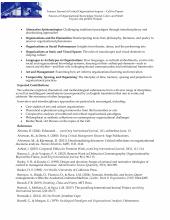Eric K. Austin; Ryan Rouse
2022 19 ( 1 ) DOI: 10.7206/tamara.1532-5555.11
|
Christian Helge Peters
|
Scott Lawley
Wyświetleń2080 Pobrań4607
|
Chris Land
|
Monika Kostera
|
Finn Janning
Wyświetleń3330 Pobrań1648
|
Ann Starbæk Bager
Wyświetleń2756 Pobrań1080
|
Zrinka Mendas
|
Finn Janning
|
Anders Kristensen; Michael Pedersen
|





